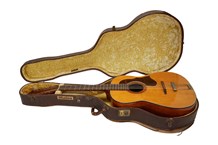If an expert witness has undertaken their forensic report with due diligence and has adhered to the Civil Procedure Rules (CPR), Part 35, then I think it is unlikely that the expert will have anything to fear.
The majority of the expert witnesses I have come across when undertaking art- and antiques-related cases have acted in a very professional manner. However, in a number of cases the other side's expert has undertaken a case in a way that might now easily leave themselves open to being sued.
Some specialists who take on expert witness work may be very knowledgeable about their own subject, but some, I find, have little or no understanding of CPR, particularly that an expert's overriding duty is to the court and that this duty overrides any obligation to the person from whom the expert has received instructions or by whom they are paid.
An expert witness's report must be independent, objective and unbiased. It should be prepared for the purpose of assisting the judge and the court and at no time should the expert assume the role of an advocate.
Therefore, a claim might arise in the following areas if not addressed properly:-
• Undertaking a case which is not within their expertise.
• Failing to report a conflict of interests.
• Failing to undertake proper research.
• Failing to consider all material facts, including those which might detract from their opinions.
• Failing to immediately notify all the parties when, after producing a report, an expert's view changes on any material matter.
• Providing only evidence that favours the party who has instructed the expert.
The court will often direct that there should be a meeting of experts. This meeting is to assist the court in understanding where the experts agree and/or disagree. Therefore it is possible that a claim for negligence might arise if a case is lost because:
• an expert is found to be 'bullying' or bringing undue pressure to bear on another expert;
• an expert is found to have shifted his position purely to obtain a concession from the other expert;
• an expert is found to have turned the meeting into a negotiation rather than a discussion;
• an expert fails to keep a record of exactly what has been agreed and what has not been agreed;
• an expert fails to sign a copy of the joint statement following the discussions.
I think it also possible (but unlikely) that an expert might in the future face a potential claim if it could be shown that they had never undertaken any specialist training such as that offered by both the two main professional bodies, The Expert Witness Institute (EWI) and the Academy of Experts (AE).
Nicholas Somers is Past Chairman RICS Arts & Antiques Faculty and Member of the Expert Witness Institute




